<?php
namespace Herrera\FileLocator\Tests;
use Herrera\FileLocator\Collection;
use Herrera\FileLocator\Locator\FileSystemLocator;
use PHPUnit_Framework_TestCase as TestCase;
use ReflectionProperty;
class CollectionTest extends TestCase
{
/**
* @var Collection
*/
private $collection;
public function testAdd()
{
$locator = new FileSystemLocator(null);
$this->collection->add($locator);
$p = new ReflectionProperty($this->collection, 'locators');
$p->setAccessible(true);
$this->assertTrue(
$p->getValue($this->collection)
->contains($locator)
);
return array($this->collection, $locator);
}Mobile positioning services in existing mobile communication systems are mainly used for emergency rescue, such as emergency rescue and positioning of users in emergency call scenarios; location-based information services, such as vehicle GPS applications, yellow pages, traffic information, weather Information, navigation information and tour guide services, etc.; location-triggered services, such as location-based management information and billing, etc.; tracking and asset management services, such as vehicle dispatching/tracking/monitoring/anti-theft, material tracking, and elderly and child monitoring services, etc. .
In order to provide location services, the LTE system introduces positioning features. The main requirement for the positioning feature is to support both the control plane positioning process and the user plane positioning process. Positioning on the control plane mainly refers to the transmission of positioning-related information through control signaling; positioning on the user plane refers to support for the OMA SUPL (Open Mobile Alliance Secure User Plane Location) protocol, that is, positioning-related information can be transmitted through OMA SUPL The protocol is used for transmission. On the wireless interface, it is user data, not control signaling.
Positioning methods are divided into positioning methods that support network-based (Network-based, E-SMLC-based) and UE-based (UE-based) positioning methods. The network-based positioning method means that the UE's position calculation is performed in the E-SMLC; the UE-based positioning method means that the UE's position calculation is performed within the UE.
All resources on this site are contributed by netizens or reprinted by major download sites. Please check the integrity of the software yourself! All resources on this site are for learning reference only. Please do not use them for commercial purposes. Otherwise, you will be responsible for all consequences! If there is any infringement, please contact us to delete it. Contact information: admin@php.cn
Related Article
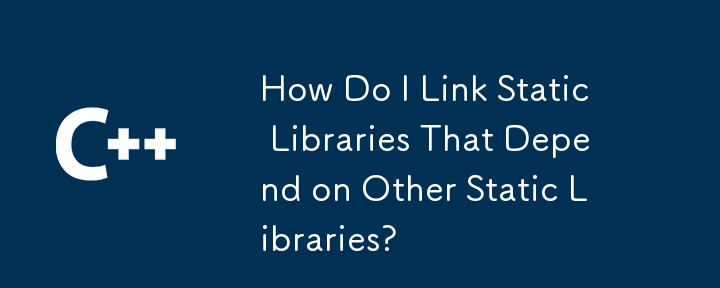 How Do I Link Static Libraries That Depend on Other Static Libraries?
How Do I Link Static Libraries That Depend on Other Static Libraries?
13 Dec 2024
Linking Static Libraries to Other Static Libraries: A Comprehensive ApproachStatic libraries provide a convenient mechanism to package reusable...
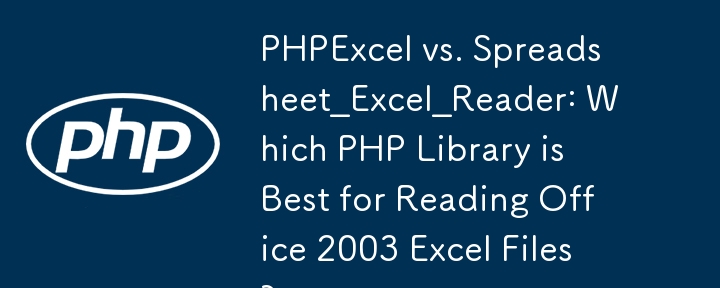 PHPExcel vs. Spreadsheet_Excel_Reader: Which PHP Library is Best for Reading Office 2003 Excel Files?
PHPExcel vs. Spreadsheet_Excel_Reader: Which PHP Library is Best for Reading Office 2003 Excel Files?
15 Nov 2024
Reading an Excel File in PHP: PHPExcelReader vs. PHPExcelProblem:You want to read an Excel file in PHP, specifically one saved in the Office 2003...
 How to Silence TensorFlow\'s Debugging Output?
How to Silence TensorFlow\'s Debugging Output?
28 Oct 2024
Suppression of Tensorflow Debugging OutputTensorflow prints extensive information about loaded libraries, found devices, and other debugging data...
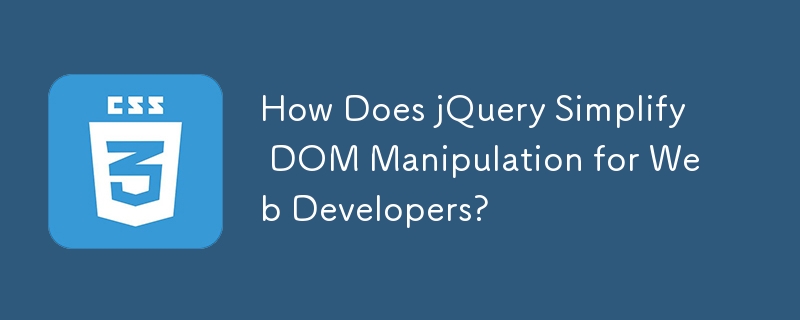 How Does jQuery Simplify DOM Manipulation for Web Developers?
How Does jQuery Simplify DOM Manipulation for Web Developers?
03 Jan 2025
Overflow: Hidden and Expansion of HeightjQuery distinguishes itself from other JavaScript libraries through its cross-platform compatibility and...
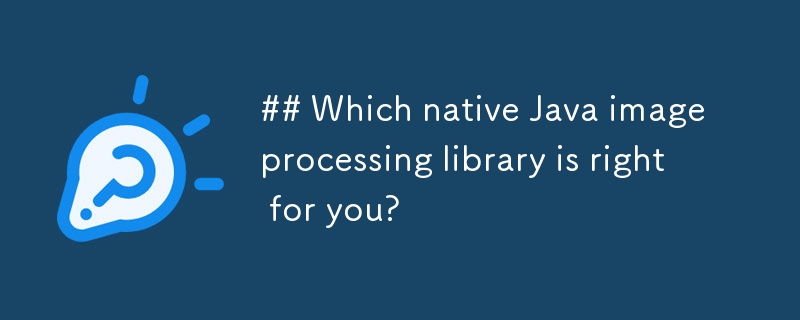 Which native Java image processing library is right for you?
Which native Java image processing library is right for you?
30 Oct 2024
Native Java Image Processing Libraries for High-Quality ResultsAs you have encountered limitations with ImageMagick and JAI, let's explore other...
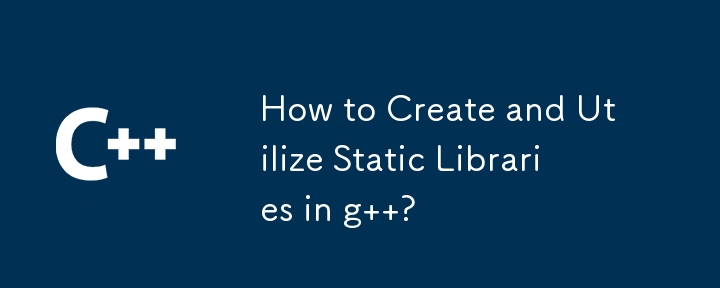 How to Create and Utilize Static Libraries in g ?
How to Create and Utilize Static Libraries in g ?
24 Oct 2024
This article guides developers on crafting static libraries in C using g . It demonstrates how to compile source code into object files, create static libraries, and incorporate them into other projects. By leveraging this approach, developers can


Hot Tools

PHP library for dependency injection containers
PHP library for dependency injection containers

A collection of 50 excellent classic PHP algorithms
Classic PHP algorithm, learn excellent ideas and expand your thinking

Small PHP library for optimizing images
Small PHP library for optimizing images




